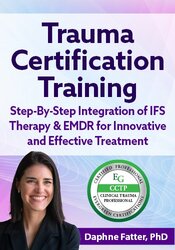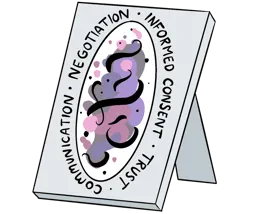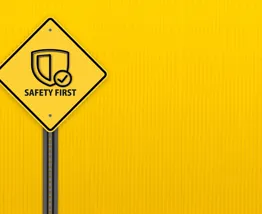Enrol in an online course today for flexible, self-paced learning—no fixed schedule required. Plus, enjoy lifetime access to course materials for convenient revisiting.
Shame? Yes! But What of Pride?: Relational Trauma and Psychotherapy

Relational trauma results from mind/body overwhelm, as in abuse, and underwhelm, as in neglect. Traumatic shame states, or shame states for short, are unavoidable consequences of relational trauma, and are at the root of much psychosocial suffering. Understanding and working with shame in psychotherapy has been in and out of vogue. In during the ’80s and ’90s, and again the last 10-plus years.
But what of pride that I, with others, consider shame’s emotional counterpart? As a child of the ’60s, I believe, ‘Pride got a bad rap’. Since the earliest times, pride has been equated with hubris, one of seven deadly sins: ‘Pride goeth... before a fall’.
As any child who learns to walk for the first time knows, and any psychotherapy patient who conquers chronic debilitation, pride also includes taking pleasure in one’s genuine achievements. Pierre Janet’s description of an act of triumph speaks powerfully to the value of pride in psychotherapy with relational trauma survivors: An act of triumph following trauma processing ‘… requires effort and results in a sense of pride that is a form of joy and heals shame’. This adaptive pride doesn’t only feel good. It serves as a powerful motivator in the face of hardship, an essential ingredient in resilience and hope for patient and therapist.
There is another form of pride that isn’t an emotion per se, but rather an enduring mind/body state that can transform shame states into aliveness. I call this ‘pro-being pride’, or ‘pro-being’ for short. The word origin of proud is from the Latinate, ‘prodesse’, where ‘prod’ means ‘for’, and ‘esse’, ‘to be’ or, in my view, ‘being’ or one’s ‘essential nature’.
Pro-being is a celebration of one’s own and others’ unique ways of being and relating. Three aspects of pro-being are defined as: ‘I delight in being me, delighting in me delighting in being myself, with me’ (intrarelational pro-being); ‘I delight in being me, delighting in you delighting in being yourself, with me’ (interrelational pro-being); and ‘I delight in being me, delighting in me delighting in being myself, in the world’ (extrarelational pro-being).
Can a survivor of relational trauma who has struggled with traumatic shame for a lifetime experience pro-being pride? If one believes as I do that pro-being is a birthright, embodying the joy of welcoming new life into the world, be that a newborn or triumphant relational trauma survivor, then the answer is a resounding, ‘Yes!’
Here are the words of a survivor of physical and sexual abuse, as well as emotional neglect, following successful processing of traumatic shame:
“There is a core of optimism, optimistic joy, that lives inside of me. A core joy of being in the world”
“It’s connected to an outlook out in the world, of trust, optimism, celebration, almost of being in the world. I’ve always had that…”
“It’s who I am”.
Who could hope for more?
The goal of psychotherapy with relational trauma survivors living with chronic, traumatic shame states is not only to quiet their pernicious effects. Rather, it is to help the patient restore, or access for the first time, their embodiment of authentic pride, ‘I can do it!’ and, more so, an enlivened experience of being and relating, ‘I am and we are!’ Equipped with the appropriate conceptual framework, guiding therapeutic principles, and an integrative approach to working with the somatic and emotional correlates of shame and pride, this can be wonderfully achieved.

















